The Lavin Agency Speakers Bureau
A speakers bureau that represents the best original thinkers,
writers, and doers for speaking engagements.
A speakers bureau that represents the best original thinkers,
writers, and doers for speaking engagements.
Photographs are the reflecting pools of our time.
World-renowned photographer Edward Burtynsky creates stunning photos—“reflecting pools of our time”—that explore large-scale social, political, and economic issues, including water, oil, and the upheaval caused by rapid industrialization and climate change. On stage, he talks about the connection between art and social transformation, human nature and consumption, and industry and environment.
“What took out the dinosaurs was a meteor impact … we, the human species, are now that impact.”
— Edward Burtynsky, The New Yorker
Edward Burtynsky’s remarkable photographic depictions of global industrial landscapes are included in the collections of over fifty major museums around the world, including the National Gallery of Canada and the Museum of Modern Art in New York. His life and work are the subjects of numerous magazine profiles, including The New Yorker, and award-winning documentaries Watermark, Manufactured Landscapes, and Anthropocene, all of which he co-directed with Jennifer Baichwal and Nicolas de Pencier. Anthropocene was recognized by Variety as one of the Best Documentaries of 2019. Watermark was awarded the $100,000 Best Canadian Film Award from the Toronto Film Critics Association.
Burtynsky’s exhibitions, which have all been published as books, include Residual Landscapes, Manufactured Landscapes, Before the Flood, China, Quarries, Oil, and Water. Burtynsky’s photos explore the complicated link between industry and nature, combining the raw elements of mining, quarrying, manufacturing, shipping, oil production, and recycling into highly expressive visions that find beauty and humanity in the most unlikely of places.
“I am not out to tell people a unitary story about what they should do to save the earth but, rather, to give people a picture of what it takes to live the way we do.”
— Edward Burtynsky, The New Yorker
Burtynsky is the founder of Toronto Image Works, a custom photo laboratory, digital imaging and new media centre catering to all levels of Toronto’s art community. He has spoken widely, including at the Library of Congress in Washington, and was one of the first recipients of the TED Prize. He is also an Officer of the Order of Canada and was named one of Canada’s Greatest Explorers by Canadian Geographic. He is the recipient of the Governor General’s Visual & Media Arts Award. At the 2019 Lucie awards at Carnegie Hall, honoring the greatest achievements in photography, Burtynsky won the award for Achievement in Documentary.
In partnership with the Scotiabank CONTACT Photography Festival, he announced the creation of The Burtynsky Grant, awarded to a Canadian photographic artist to support the publication of their photography book. In November 2019, The Royal Canadian Geographical Society presented him with the Gold Medal for his work in environmental photography.
New Yorker Writer Author of Antisocial
Author of Living in Data Former Library of Congress Innovator in Residence Former NYT Data Artist-in-Residence

Psychologist and Author of The Village Effect and The Sexual Paradox
Director of The Muslims Are Coming! Author of How to Make White People Laugh
Director of Washington Black on Hulu Co-Founder of AFROBUBBLEGUM
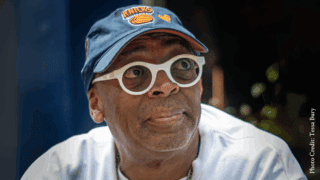
Oscar-Winning Director of BlacKkKlansman, Do the Right Thing, and When the Levees Broke

Founder of the "I Matter" Poetry and Art Competition Teen Vogue 21 Under 21 Honoree Winner of the Princeton Prize in Race Relations
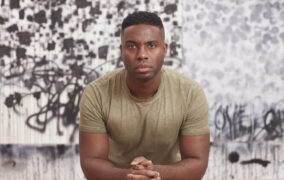
Award-Winning Artist Advocate for the Legacy of Nina Simone
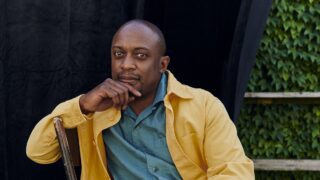
World-Renowned Artist Winner of the US Department of State Medal of Arts Guggenheim Fellow

#1 New York Times Bestselling Author of Grit and Situated | Pioneering Researcher on Grit, Perseverance, and the Science of Success

Nobel Prize Winner | 3rd Most Cited Economist in the World | Bestselling Co-Author of Why Nations Fail and Power and Progress

Harvard Business School Behavioral Science Professor | "40 Under 40 MBA Professor" | Author of TALK: The Science of Conversation and the Art of Being Ourselves

#1 New York Times Bestselling Co-Author of Abundance | Host of thePlain English Podcast | Founder of the Substack Derek Thompson

#1 New York Times Bestselling Author of How the Word Is Passed and Above Ground | The Atlantic Staff Writer
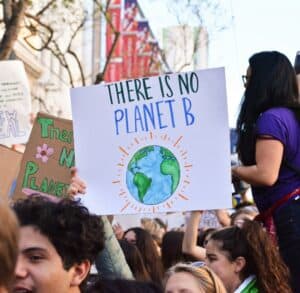
Human beings now affect the Earth more than all other natural forces combined—so much so that scientists have coined a new epoch for it: the Anthropocene. Edwards Burtynsky is world-renowned for his jaw-dropping environmental photos—but he’s also an eloquent and insightful speaker on the environmental implications of this new era, seen through the lens of his camera. In his latest critically-acclaimed film Anthropocene: The Human Epoch, Burtynsky explores the impact of humanity on climate change. In a new talk, drawn from all he has witnessed on every continent save Antarctica, Burtynsky discusses—and demonstrates in his incredible, large-scale photographs—that we’ve reached an unprecedented moment in history. Burtynsky asks audiences to consider what drives us as a species, offering a wake-up call on the destruction caused by our dominance.

There is no life without water: the subject of Edward Burtynsky’s newest exhibition and book. In this immersive talk—which features his spectacular photographs—Burtynsky tells us the story of where water comes from, how we use it, distribute it, and waste it. He shows us its remote sources, the transformation of desert into cities with waterfronts on each doorstep, the compromised landscapes of the American Southwest. And, he explores the infrastructure of water management: the gigantic hydroelectric dams and terraced rice fields in the heart of China, the vast irrigation systems of America’s bread basket, and the use of aquaculture. Through his poetic images, Burtynsky reveals a vital component of life on earth, and foreshadows the extent to which our future depends on how we deal with this increasingly scarce resource.
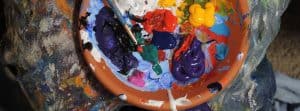
In The Landscape of Human Systems, Edward Burtynsky presents a survey of his work, whether as large-scale colour photographs or more recently in film production, and discusses the intersection of his image-making process as an artist while exploring modern civilization’s troubling relationship with nature.